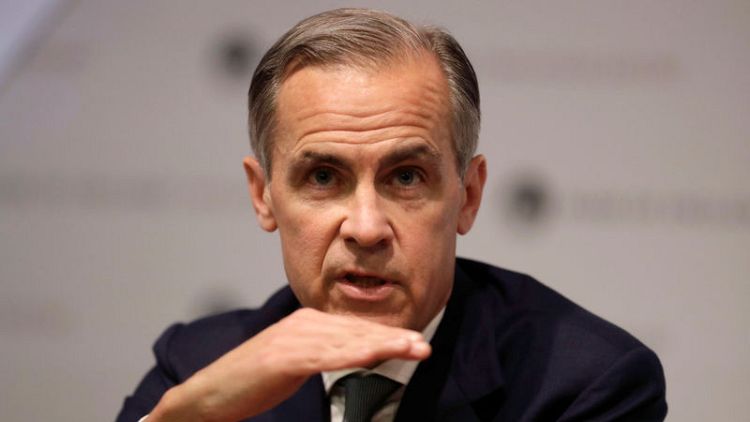By Stanley White and Leika Kihara
TOKYO (Reuters) - Central bankers in the United States and other rich nations should take more account of the impact their policies have on emerging economies, Bank of England Governor Mark Carney said on Thursday.
"While it is unrealistic to expect advanced economy policymakers to internalise fully spillovers from their actions on emerging markets, given their domestic mandates, (their) monetary policies will increasingly need to take account of spillbacks," he said.
The United States only accounted for 15% of global economic output, but the U.S. dollar was used in more than half of international trade, and the dollar acted as a monetary anchor for economies amounting to 70% of global output, Carney said.
"This means developments in the U.S. have disproportionate influence on global economic and financial conditions," he told bankers at the Institute of International Finance, which is meeting in Tokyo.
"When the Fed responds to domestic developments, such as a loosening in fiscal policy, global financial conditions and activity react strongly. This was the case during both the 2013 'taper tantrum' and over the past year, as Fed communications significantly shifted expectations for U.S. monetary policy."
Last month Carney said financial markets had priced in too little chance of further BoE interest rate rises, assuming Brexit goes smoothly, partly due to global factors pushing down bond yields.
Since then, increased U.S.-China trade tensions and continued Brexit uncertainty has meant markets now appear to think the Bank of England is more likely to have to cut rates over the next year than to raise them.
Emerging markets should preserve central bank independence, avoid excessive lending growth and rely less on foreign-denominated debt to prepare for any future downturn, Carney added.
"Fiscal space will need to be used carefully given ongoing structural imperatives, the rising risks of global shocks, and the clear limits of monetary policy," he said.
Turkey and South Africa are among countries which have suffered currency volatility in recent months as foreign investors questioned the independence of their central banks.
On Wednesday, a faction loyal to South Africa's President Cyril Ramaphosa opposed calls from a rival group within the ruling ANC party for the country's bank to do more to boost employment and growth.
Carney also warned of the potentially destabilising effect if foreign funds that invested in illiquid emerging market debt saw a surge in demand for withdrawals from investors.
Global regulators were looking at whether funds should be required to have redemption periods that better matched the time it would take to sell assets in an orderly way, he said.
Several British real estate funds temporarily stopped investors withdrawing money after 2016's Brexit referendum, and this week a fund focused on British companies, run by high-profile investor Neil Woodford, suspended withdrawals.
(Writing by David Milliken; Editing by William Schomberg and Jon Boyle)



